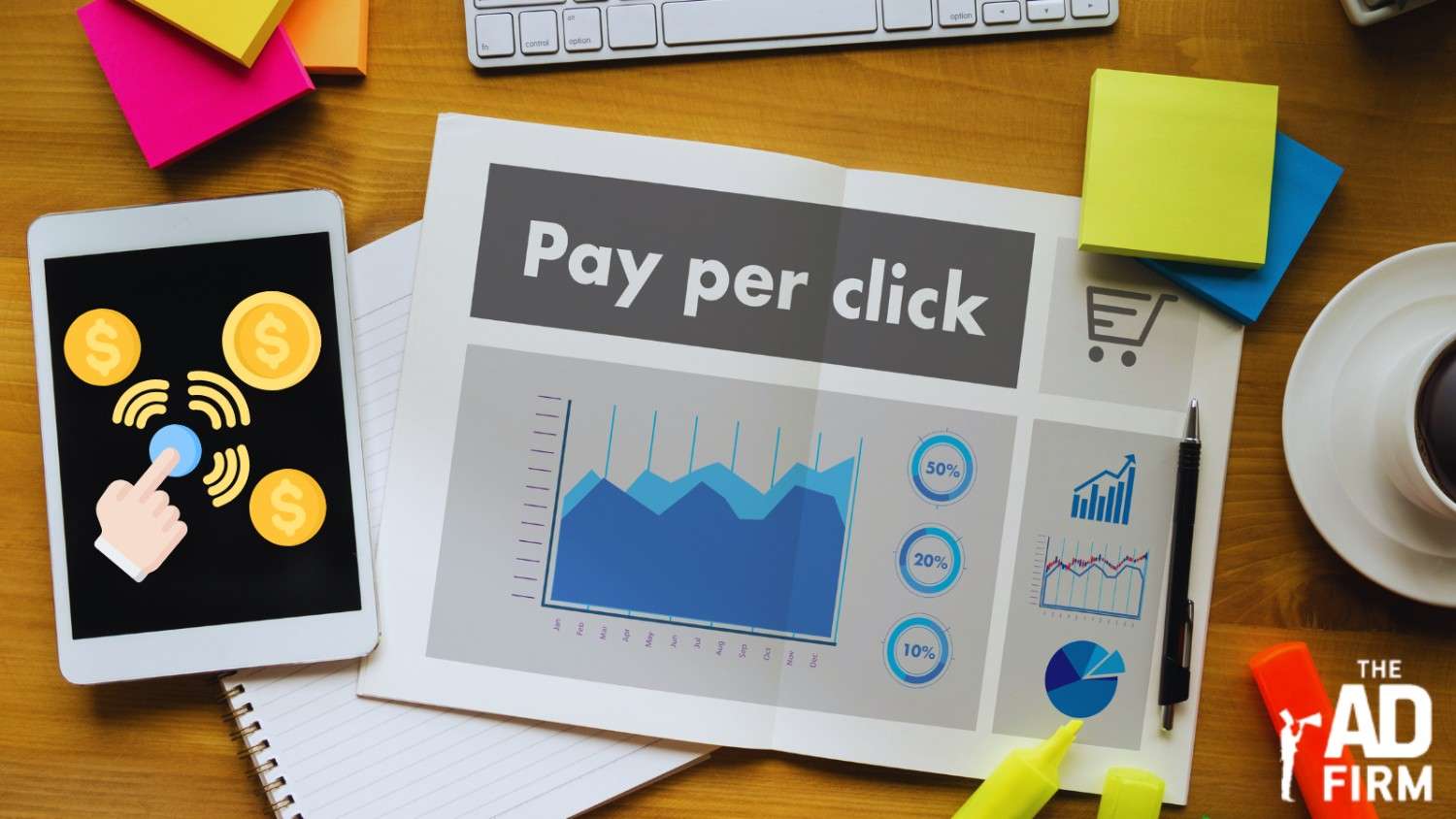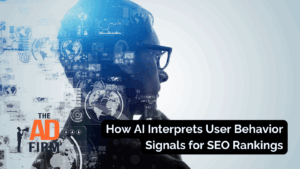Hyper-personalization has transformed PPC advertising by enabling businesses to deliver highly targeted ads tailored precisely to individual preferences and behaviors. This advanced strategy moves beyond traditional audience segmentation by leveraging detailed data and real-time insights, creating personalized experiences that deeply resonate with users. As digital audiences become increasingly selective, understanding and employing hyper-personalization in your PPC Services allows your brand to connect effectively, driving higher engagement, conversions, and customer loyalty in a competitive market.
What is Hyper-Personalization in PPC?
Hyper-personalization in PPC goes beyond traditional targeting to deliver highly customized ads based on user behavior, preferences, and intent. Unlike conventional advertising, which relies primarily on broad demographics, hyper-personalized ads utilize detailed data to match precisely what users want, when they want it. This shift toward precision helps brands resonate deeply with their audience, boosting engagement and maximizing the return on ad spend (ROAS).
What is Hyper-Personalization in Digital Marketing?
Hyper-personalization in digital marketing involves using real-time data and advanced analytics to craft exceptionally targeted and individualized user experiences. It differs significantly from traditional targeting, which typically relies on basic demographic details like age, location, and gender. Hyper-personalization combines behavioral insights, past interactions, and contextual information to understand and anticipate user needs.
In PPC Services, hyper-personalization is particularly powerful because paid search platforms, like Google Ads and Facebook Ads, enable granular audience segmentation. Businesses can now deliver precisely tailored ad messages that reflect each individual’s interests and intent, increasing relevancy and effectiveness.
Why is Hyper-Personalization Crucial for PPC Success?
Consumers today expect tailored experiences. Generic ads are increasingly ignored or overlooked, causing wasted ad spend and missed opportunities. Hyper-personalized PPC campaigns cut through the noise, providing the right message at the right moment.
Hyper-personalized ads deliver higher click-through rates (CTR), improved conversion rates, and increased customer loyalty. By consistently offering relevant content, you not only improve immediate campaign performance but also foster stronger long-term customer relationships. Your audience feels understood, respected, and valued, turning casual visitors into loyal advocates for your brand.
Advance Your Digital Reach with The Ad Firm
- Local SEO: Dominate your local market and attract more customers with targeted local SEO strategies.
- PPC: Use precise PPC management to draw high-quality traffic and boost your leads effectively.
- Content Marketing: Create and distribute valuable, relevant content that captivates your audience and builds authority.
Utilizing Data to Enhance PPC Ad Targeting
Data is the cornerstone of effective hyper-personalization. The success of any precision-targeted campaign hinges on your ability to gather, analyze, and leverage rich user data. The more accurately you can interpret user data, the more personalized and impactful your PPC campaigns will become.
What Types of Data are Useful for Hyper-Personalization?
Effective hyper-personalization integrates diverse data types to create a comprehensive user profile:
- Behavioral Data: Captures user browsing history, purchasing habits, and online interactions. For instance, knowing a user’s past product views and cart abandonments can guide tailored remarketing strategies.
- Demographic Data: Provides context about age, gender, income level, and lifestyle. Understanding these basics helps refine messaging and improve ad relevance across audience segments.
- Contextual and Real-time Data: Includes factors such as device type, geographical location, the time of day, and immediate user intent. Contextual targeting allows advertisers to align their ads precisely with a user’s current situation, delivering timely and relevant offers.
Combining these data categories creates rich, actionable insights, enabling deeper audience understanding and improved targeting precision.
How Do I Collect Data for My PPC Campaigns?
Gathering valuable data for hyper-personalization requires strategic and consistent efforts. Here are practical steps to effectively collect actionable data for PPC Services:
- Use Tracking Pixels and Tags: Tools like Facebook Pixel or Google Ads conversion tracking allow precise measurement of user actions on your site.
- Leverage CRM Integration: Connecting customer relationship management (CRM) platforms with advertising tools helps centralize and enrich your audience data, improving ad targeting.
- Utilize Website Analytics: Google Analytics, SEMrush, or similar tools provide valuable insights into user behavior patterns, engagement rates, and conversion metrics.
- Conduct Surveys and Feedback Forms: Direct user feedback can offer insights unavailable through passive data collection, providing deeper context about user preferences and experiences.
Integrating these methods into your data collection process enhances the depth and quality of your hyper-personalized targeting capabilities.
Amplify Your Market Strategy with The Ad Firm
- PPC: Master the art of pay-per-click advertising to drive meaningful and measurable results.
- SEO: Elevate your visibility on search engines to attract more targeted traffic to your site.
- Content Marketing: Develop and implement a content marketing strategy that enhances brand recognition and customer engagement.
Implementing Hyper-Personalization Strategies in PPC Campaigns
Successfully applying hyper-personalization in your PPC campaigns requires strategic execution. Data alone won’t suffice; you need clear tactics for leveraging insights effectively. This includes audience segmentation, ad personalization, and dynamic content strategies.
How Do I Segment Audiences for Better Targeting?
Audience segmentation enables the delivery of highly relevant ads. Effective segmentation tactics for hyper-personalization include:
- Behavioral Segmentation: Group users based on their actions, such as previous purchases, browsing behavior, or content interactions.
- Contextual Segmentation: Divide audiences based on context, such as geographic location or devices they use. Particularly valuable for Ecommerce PPC, contextual segmentation ensures your offers align perfectly with real-time user circumstances.
- Interest and Affinity Segmentation: Target users based on interests, hobbies, or lifestyles revealed through their digital footprint. Social media platforms like Facebook and Instagram excel in this kind of audience segmentation.
By using detailed audience segments, your PPC campaigns become laser-focused, driving significantly better results.
What Tools Can Help with Hyper-Personalization in PPC?
Selecting the right tools streamlines hyper-personalization efforts. Here are some top platforms to assist in precision targeting:
- Google Ads: Offers robust targeting options, including behavioral, demographic, and custom intent audiences. Its integration with Analytics provides deep insights for optimizing hyper-personalized campaigns.
- Facebook Ads Manager: This tool enables detailed targeting and custom audiences built from CRM lists, website interactions, and user engagement patterns.
- Adobe Advertising Cloud: Facilitates multi-channel targeting and advanced audience segmentation, enhancing personalization across PPC channels.
- SEMrush & Ahrefs: Help uncover valuable keyword insights and competitor analysis, refining your targeted PPC strategy.
By leveraging these tools, a digital marketing agency can efficiently execute highly personalized ad strategies, enhancing campaign effectiveness and ROI.
Leveraging AI and Machine Learning for Hyper-Personalization in PPC
AI and machine learning are transforming PPC advertising by automating processes, refining targeting, and optimizing ad performance in real time. With digital advertising becoming increasingly complex, businesses leveraging AI-powered personalization gain a competitive advantage by delivering highly relevant ads that align with user behavior and intent.
Strengthen Your Online Authority with The Ad Firm
- SEO: Build a formidable online presence with SEO strategies designed for maximum impact.
- Web Design: Create a website that not only looks great but also performs well across all devices.
- Digital PR: Manage your online reputation and enhance visibility with strategic digital public relations.
Unlike traditional PPC campaigns that rely on static audience segments, AI-driven hyper-personalization adapts dynamically. It processes massive amounts of data, continuously learns from user interactions, and refines targeting to serve the most relevant content. This approach enhances PPC Services by increasing efficiency, improving engagement, and increasing conversion rates.
What Role Does AI Play in Hyper-Personalization for PPC?
AI plays a crucial role in personalizing PPC campaigns at scale. Its ability to analyze vast datasets, detect patterns, and predict user behavior allows advertisers to fine-tune their campaigns with extreme precision. Here’s how AI is transforming hyper-personalization in PPC:
- Predictive Analytics: AI analyzes past user behavior, purchase history, and engagement metrics to forecast which ads will generate the best results. This enables advertisers to tailor messaging and adjust bidding strategies based on predictive data. For example, an Ecommerce PPC campaign can use predictive analytics to determine when users are most likely to convert and adjust bids accordingly.
- Dynamic Creative Optimization (DCO): AI-driven DCO automatically tests and rotates multiple ad variations, identifying the best-performing creatives for different audience segments. This ensures users receive personalized ads based on their preferences and real-time behavior. For instance, if a user previously clicked on a PPC ad for SEO services but didn’t convert, the next ad they see might feature a different call to action or incentive, such as a free consultation.
- Smart Bidding & Automation: AI-powered bidding strategies like Google’s Smart Bidding optimize ad spend by adjusting real-time bids based on conversion likelihood. This is particularly beneficial for digital marketing agency campaigns targeting competitive keywords, ensuring that budgets are spent efficiently on high-value prospects.
- Chatbots & AI-Driven Retargeting: AI-powered chatbots can interact with users, collect data, and retarget them with highly personalized PPC ads. For example, if a user inquires about Ecommerce PPC solutions via chatbot, AI can categorize them as a high-intent lead and serve them retargeted ads with custom offers.
By integrating AI into PPC campaigns, businesses can automate personalization at scale, reduce inefficiencies, and improve overall campaign performance.
Maximize Your Online Impact with The Ad Firm
- Local SEO: Capture the local market with strategic SEO techniques that drive foot traffic and online sales.
- Digital PR: Boost your brand’s image with strategic digital PR that connects and resonates with your audience.
- PPC: Implement targeted PPC campaigns that effectively convert interest into action.
Overcoming Challenges in AI-Powered Hyper-Personalization
Despite its advantages, AI-driven personalization presents challenges that advertisers must address to maximize effectiveness:
- Data Privacy Compliance: Regulations like GDPR and CCPA mandate strict data protection measures. Businesses must ensure data collection and usage transparency to maintain consumer trust while benefiting from AI-driven targeting.
- Data Quality Management: AI’s effectiveness relies on high-quality data. Inaccurate or incomplete data can lead to poor personalization, reducing campaign effectiveness. Advertisers must regularly clean and validate data to ensure accuracy.
- Ad Fatigue & Over-Personalization: Delivering hyper-personalized ads too frequently or repetitively can overwhelm users, leading to ad fatigue. A strategic approach that rotates ad creatives and refreshes messaging prevents engagement drop-offs.
By addressing these challenges, businesses can fully leverage AI for PPC Services, ensuring campaigns remain effective and compliant while delivering hyper-personalized ad experiences.
Measuring the Impact and Success of Hyper-Personalized PPC Ads
Hyper-personalized PPC campaigns require ongoing evaluation to ensure they deliver the desired results. Measuring performance through data-driven insights helps advertisers optimize targeting, refine messaging, and maximize return on investment.
Tracking the right metrics enables businesses to assess campaign effectiveness, identify areas for improvement, and make data-backed adjustments. Without proper measurement, even the most personalized campaigns risk underperforming.
How Can I Measure the Success of Personalized PPC Ads?
To determine whether hyper-personalized PPC campaigns are driving tangible results, advertisers should track key performance indicators (KPIs):
- Click-Through Rate (CTR): This measure measures how many users click on an ad after seeing it. A high CTR indicates strong relevance and engagement, signaling that personalization efforts are working.
- Conversion Rate (CVR): Tracks the percentage of users who take a desired action (e.g., making a purchase or signing up for a service). A well-optimized personalized campaign should yield higher conversion rates.
- Return on Ad Spend (ROAS): Calculates the revenue generated for every dollar spent on PPC ads. A higher ROAS signifies that hyper-personalization is effectively driving profitable conversions.
- Customer Lifetime Value (CLV): Evaluates the long-term value of customers acquired through PPC. A well-targeted campaign should attract high-value customers who continue engaging with the brand.
Advertisers can monitor these metrics using tools like Google Analytics, Google Ads reports, and third-party PPC tracking platforms. Regularly analyzing performance data ensures continuous campaign improvement.
Transform Your Online Strategy with The Ad Firm
- SEO: Achieve top search rankings and outpace your competitors with our expert SEO techniques.
- Paid Ads: Leverage cutting-edge ad strategies to maximize return on investment and increase conversions.
- Digital PR: Manage your brand’s reputation and enhance public perception with our tailored digital PR services.
What Are the Benefits of Hyper-Personalization in PPC?
Hyper-personalization offers numerous advantages that directly impact campaign success and business growth:
- Higher Engagement & Interaction: Personalized ads resonate more with users, increasing engagement rates and improving brand perception.
- Increased Conversions & Revenue: Hyper-personalized campaigns drive more conversions and maximize revenue potential by delivering the right message to the right audience.
- Stronger Customer Relationships & Retention: Personalized PPC ads create a more meaningful connection with users, fostering trust and long-term loyalty.
- Competitive Advantage in Crowded Markets: Businesses that implement hyper-personalization outperform competitors using traditional, broad PPC strategies.
By adopting hyper-personalization strategies, businesses elevate their PPC Services, enhance customer experiences, and achieve greater campaign success. Ready to supercharge your PPC campaigns through powerful hyper-personalization? The Ad Firm delivers expertly tailored PPC strategies designed to captivate your audience, drive higher engagement, and maximize your marketing ROI.
Don’t settle for generic advertising. Maximize your ad spend with strategic, data-driven PPC campaigns crafted by The Ad Firm. Our PPC experts optimize your ads to reach the right audience, boost conversions, and deliver measurable results. Call The Ad Firm today!






